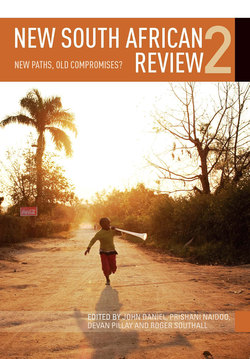Читать книгу New South African Review 2 - Paul Hoffman - Страница 19
На сайте Литреса книга снята с продажи.
THE ROAD FROM POLOKWANE
ОглавлениеAt Polokwane, the SACP/Cosatu strategy of ‘swelling the ranks’ of the ANC with working class members – in conjunction with support from the ANC Youth League, among others – paid off, as the Zuma slate received sixty per cent of the vote compared to Mbeki’s forty per cent. Resolutions taken at the conference seemed to confirm the drift towards a ‘democratic developmental state’ and away from neoliberalism.
Nonetheless, this was not a decisive shift. Under Mbeki, Gear’s market fundamentalism was steadily being discarded in favour of a more pragmatic policy approach that embraced the concept of an interventionist ‘developmental state’.9 Polokwane may have given it added urgency but there was no overall commitment to move away from a conservative macroeconomic policy stance (although Cosatu (2010a) continues to argue that this was strongly implied).
Where there did seem to be a decisive shift was in a greater commitment to the alliance, and indeed during 2008 the alliance met regularly. There was increasing hope that it, and not the ANC, would become the ‘political centre’. This, however, was rejected by the new ANC leadership,10 which also assured the markets that macroeconomic policy would not change significantly. Indeed – although he was forced to retract after an outcry by Cosatu – Zuma even hinted to the business world that there would be greater labour market flexibility. This trend continued after the ousting of Mbeki as state president in September 2008, with Kgalema Motlanthe installed in his place until elections the following year (Marais, 2011).
Soon after the April 2009 elections, following which Zuma became president, and the appointment of SACP general secretary Blade Nzimande as Higher Education minister and his deputy Jeremy Cronin as deputy minister of Transport, turbulence within the alliance increased significantly. While government dared not talk about labour market flexibility, it became clear that macroeconomic policy was not going to change, for the ANC was too beholden to the minerals-energy-financial complex and its perceived need to attract foreign investment (Mohamed, 2010).
